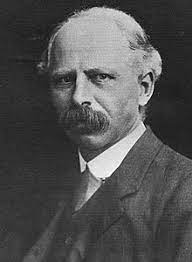Hobhouse, Leonard

Bio: (1864-1929) British sociologist. Leonard Hobhouse studied at Oxford and taught at the University of London. Hobhouse was an evolutionist, and, above all, he was interested in the evolution of the mind and ethics. From social-liberal positions, he advocated social reforms and internationalism and was an opponent of imperialism in all its forms.
He believed that evolution is not a direct line of development, but over time progress will, in the end, lead to the formation of a single world society based on ethical universalism, humanism, and harmony. He believed that the evolution of the human mind was more important for social progress than the evolution of technology. In his observation of the evolution of morality and the evolution of the mind, he concluded that these two phenomena went through five evolutionary phases. In the first phase, at the level that precedes the emergence of civilization, mental action is driven by impulses, and ethics and morality are based on obligations to members of one's local kinship group.
In the second phase, when the first civilizations are formed, proto-science appears in Babylon and Egypt; while morality at the same stage begins to be linked to the protection of life and property, but continues to apply only to members of one's own group. The third mental level is related to the period between the eighth and fifth centuries BC when the world religions were formed: Judaism, Confucianism, Hinduism, and Buddhism. These religions also create moral systems that become an integral part of these religions. In the fourth stage, a systematic secular philosophy was formed among the ancient Greeks, as well as the formulation of moral principles that regulate universal rights and duties. At the fifth level of development of the mind, there is the development of a modern empirical way of thinking in Europe in the 16th century.
In the book The Material Culture and Social Institutions of the Simpler Peoples (1915), written in collaboration with G. C. Wheeler and Morris Ginsberg, the authors classified societies according to their technological development. They introduced a scheme with seven major ‘‘stages of economic culture’’: (1) Lower Hunters; (2) Higher Hunters; (3) Incipient Agriculturalists; (4) Middle Agriculturalists; (5) Highest Agriculturalists; (6) Lower Pastoralists; and (7) Higher Pastoralists. Pastoralists and agriculturalists in this evolutionary classification function as alternative directions of evolution, and not as a chronological sequence. Studying ethnographic data for over 400 different societies, the authors concluded that with the development of an economy, there come more and more developed and formal forms of government in a society. A similar process happened with social stratification and private property ownership, as both social phenomena become more pronounced at higher economic stages.
Fields of research
Agriculture Civilization Colonialism Democracy Economy Evolution History Inequality, Social Kinship Liberalism Morality Rationality State TechnologyTheoretical approaches
Sociocultural Evolutionism, Cultural EcologyMain works
Mind in Evolution (1901);
Democracy and Reaction (1905);
Morals in Evolution (1906);
Liberalism (1911);
Development and Purpose (1913);
The Material Culture and Social Institutions of the Simpler Peoples (1915);
The Metaphysical Theory of the State: A Criticism (1918);
The Rational Good: A Study in the Logic of Practice (1921);
The Elements of Social Justice (1922);
Social Development: its Nature and Conditions (1924).

